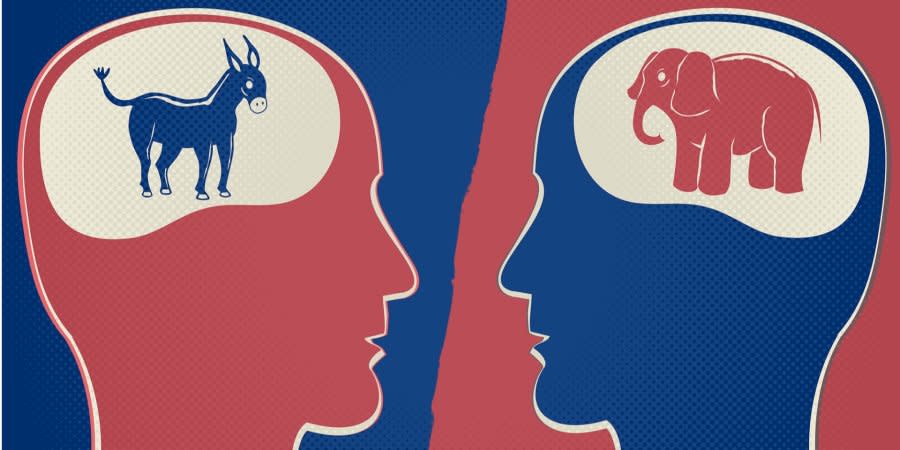Brain scans can predict political leanings, research shows

Read also: A psychiatrist explains why Putin hates Ukraine and Ukrainians
The study analyzed MRI data at the Ohio Supercomputer Center, using advanced machine learning algorithms.
Read also: Most Ukrainians support full return of occupied territories with Donbas and Crimea
Participants were then graded on a six-point scale, based on their political leanings, from “very liberal” to “very conservative.”
“The results suggest that the biological and neurological roots of political behavior run much deeper than we previously thought,” said study co-author Skyler Cranmer, the Phillips and Henry Professor of Political Science at Ohio State University.
174 adults were asked to perform various tasks while their brain activity was being MRI scanned – none of them related to political matters. Even when the participants were told to avoid thinking about anything at all, analysis of their brains betrayed their political views.
“Even without any stimulus at all, functional connectivity in the brain can help us predict a person's political orientation,” commented co-author James Wilson, assistant professor of psychiatry and biostatistics at the University of Pittsburgh School of Medicine.
Read also: Russian man threatens Ukrainian TV presenter and her son in Germany
Three out of eight different tasks performed by the participants demonstrated a very strong correlation with political ideology: an empathy test, an episodic memory test, and a reward task, where “participants could win or lose money based on how quickly they pushed a button.”
The empathy test results correlated strongly with moderate ideology, while the reward-based task predicted “very liberal” and “very conservative” views.
“The results with the empathy task suggest that political thought may be closely tied to emotion and emotional response,” said Wilson.
“What we don't know is whether that brain signature is there because of the ideology that people choose, or whether people's ideology is caused by the signatures we found.”
Read also: The Azov Regiment has been called Neo-Nazi. Is it?
Recorded brain activity patterns were then tied to demographic and socio-economic factors (age, sex, income, and education), allowing the model to accurately predict the political ideology of the participants.
Activity in specific regions of the brain – the amygdala, inferior frontal gyrus and the hippocampus – was most strongly associated with participants’ political leanings.
The study results were published in the PNAS Nexus journal, in late May 2022.

